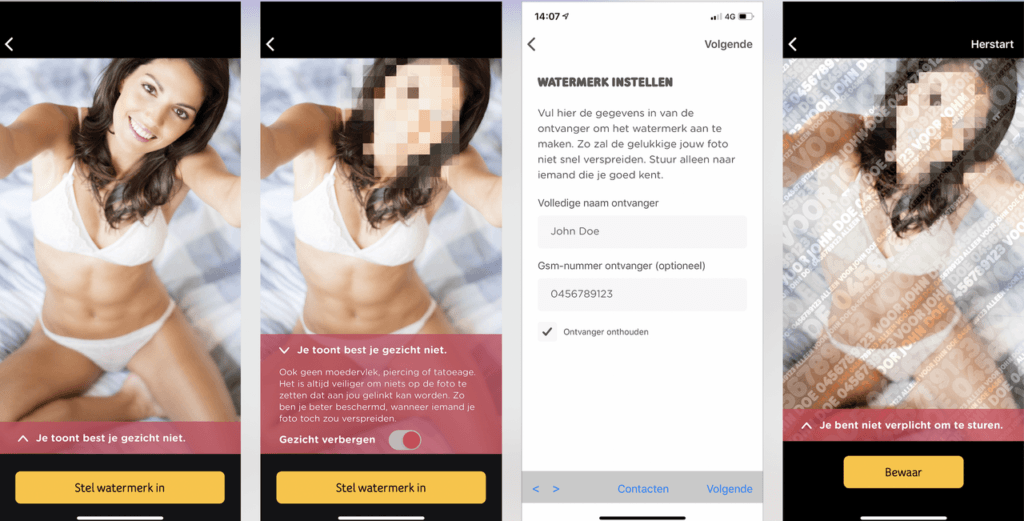A new app to better protect people when they send candid pictures of themselves while sexting has been launched by Belgian telephone company Telenet.
The app, called .comdom, allows people to tag their photos with a watermark, containing the name and phone number of the person who will receive the picture. If the recipient then shares the picture, it will be traceable, according to Telenet.
In Belgium, up to 50% of people between 15 and 21 occasionally sext, meaning they send and receive messages with sexually explicit content, often containing pictures. Several studies have also shown that the phenomenon has increased in recent years not only because more people have a smartphone, but because sexting is becoming normalised. "Five years ago, our advice would have been to simply not send sexts," the Child Focus organisation said, reports De Morgen. "Now we realise that it is part of the sexual experience of young people," they added.
"The app provides an in-between step, between either not sending a photo, or sending an 'unsafe' photo. The responsibility also gradually shifts to the person who sends the photo," said a spokesperson for Sensoa, the Flemish expertise centre for sexual health, reports De Morgen. "However, technology will not solve everything. A lot of attention still needs to be paid to sexual education, in which it is made clear that it is not okay to share received photos," the organisation added.
The new app wants to prevent people from sharing the pictures they received. "The app lets you add the name and possibly also the phone number of the recipient to your picture," said Fabienne Beckers, who co-developed the app, reports VRT NWS. "The recipient will then be much less inclined to share such a photo. You sometimes hear stories about photos of a pupil being shared with almost all students in a school. With this, that photo will also include the name of the perpetrator," she added.
The app warns users that it is safer not to show any identifiable features, like a distinctive birthmark, piercings or tattoos, and also gives them the option to blur their face. It also tells users to only send photos to people they know well, and even reminds them they are not obligated to send their photos at all.
However, the watermark will make the photo a lot more fuzzy as the transparent letters on top of the image will make it more difficult to see every detail. "You can still very clearly see what you want to show. You can also play with that watermark a little. You can slide it away from the places you want to show, or put it on top of them. We also tested the app with a lot of young people, and most of them said that they would definitely want to use it," she added.
The app is available in the Apple Store and on the www.comdom.be website. Google Play does not want to offer the app, as it does not want to encourage sexting.
Maïthé Chini
The Brussels Times

